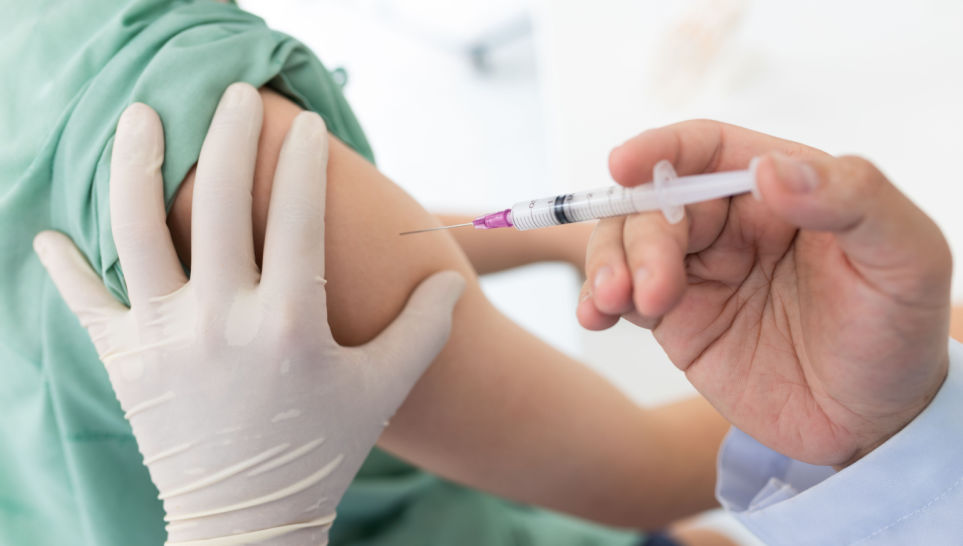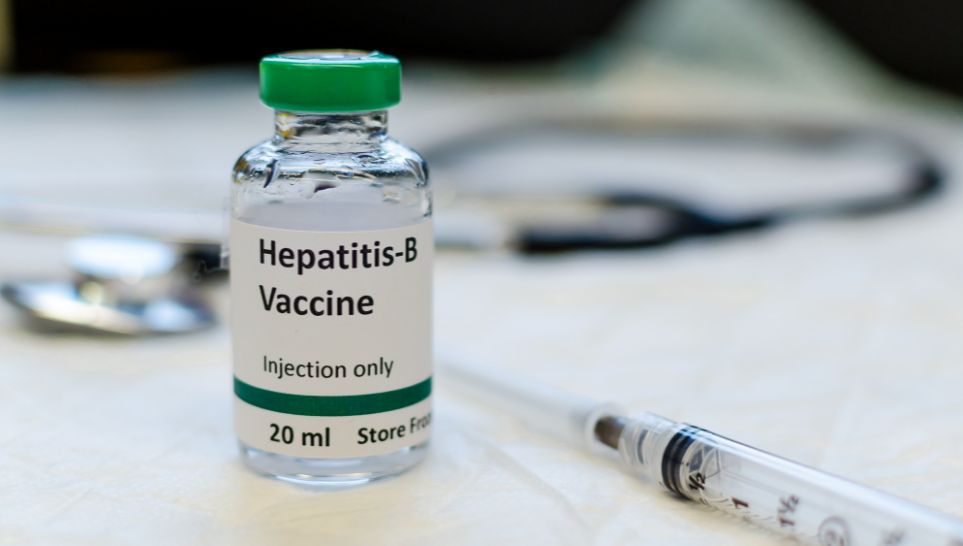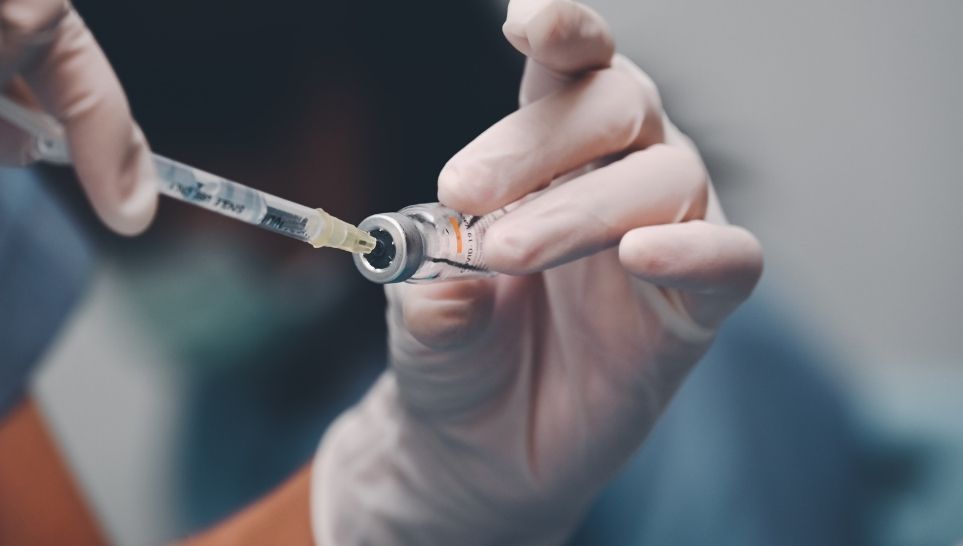Vaccines protect the general public from dangerous illnesses and diseases. Unfortunately, improper vaccine administration can cause debilitating shoulder pain and injuries, often requiring costly treatments, physical therapy, prescription medications, and downtime from physical activities and work.
If you suffer a rotator cuff injury from faulty vaccine administration, you may be able to seek financial compensation for your medical expenses through the National Vaccine Injury Compensation Program. Prompt and adequate medical treatments for your rotator cuff injury can offer a full recovery, so seeking the resources you need is critical. If you need help building a case for your shoulder injury related to vaccine administration, schedule a free consultation with Sadaka Law today.
Can You Get a Rotator Cuff Tear From Vaccine?
Yes, you can get a rotator cuff injury, including tears, from a vaccine. Healthcare professionals administer vaccines to the shoulder’s deltoid muscle. Based on the patient’s physical characteristics, vaccine administrators must carefully gauge the injection site to avoid sensitive tendons and nerves.
Rotator cuff vaccine injuries occur when the needle penetrates the wrong area of the shoulder muscle, like the axillary nerve or bursa, resulting in an inflammatory reaction that causes a rapid onset of decreased range of motion, arm weakness, and immediate pain. Shoulder injuries related to vaccine administration (SIRVA injuries) may include rotator cuff tears, impingement syndrome (pain caused by tendons rubbing on the upper arm bone or shoulder blade), adhesive capsulitis (frozen shoulder), and other complications related to the local inflammatory reaction.
How Does a Rotator Cuff Vaccine Injury Occur?
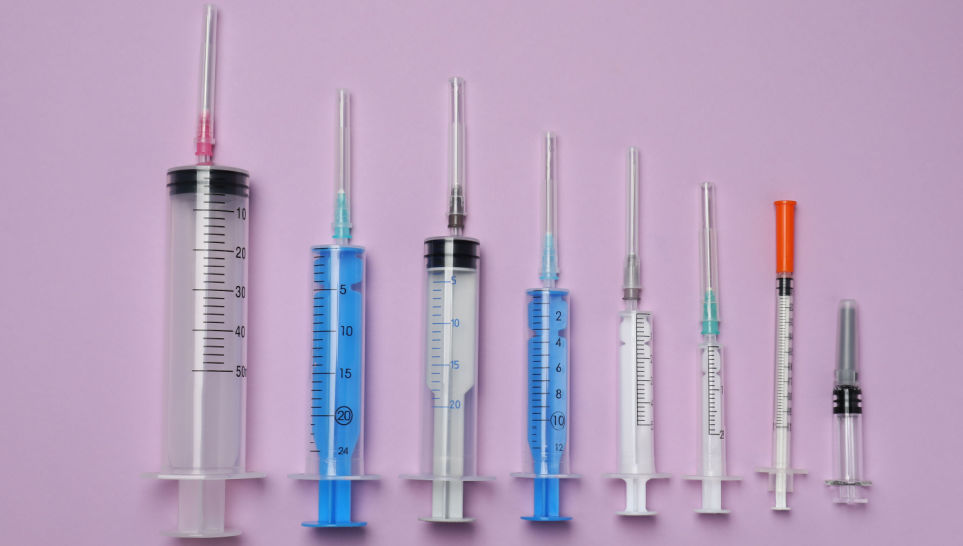
The shoulder joint includes a complex network of muscles, bones, tendons, and nerves, all bundled together in a small shoulder socket and surrounding area. When vaccine administrators inject needles into the shoulder capsule, they must follow the best vaccination practice recommendations to properly administer the medication into the muscle without hitting sensitive tissues.
Rotator cuff vaccine injuries can happen from the following mistakes:
- Inappropriate needle length, potentially resulting in over-penetration into the area
- Improper injection point, potentially hitting the subacromial bursa
- Accidental injection into synovial tissues beneath the deltoid, causing painful inflammation
- Poor overall technique during the vaccine injection
Which Vaccines Can Cause Rotator Cuff Tears?
Various vaccines can cause rotator cuff injuries. The influenza vaccine is most commonly associated with rotator cuff injuries, with 73% of cases affecting middle-aged females. Other vaccines that may cause shoulder injuries include the tetanus shot and the COVID vaccine.
Currently, only 20 reported rotator cuff injuries have been linked to COVID vaccine administration, according to PubMed searches for “COVID” and “shoulder injury related to vaccine administration.” Note that the reported cases for COVID, tetanus and other vaccines may be lower than those for influenza vaccination because people typically receive the flu shot annually, which could increase risks.
Note that the National Vaccine Injury Compensation Program does not cover injuries from all vaccines. For example, the VICP only covers two pneumococcal vaccines, not all. A shoulder injury vaccine attorney can help you understand your eligibility.
The National Vaccine Injury Compensation Program covers some or all vaccines relating to the following conditions:
- Diphtheria and Tetanus
- Pertussis
- Measles, Mumps, and Rubella
- Polio vaccines
- Hepatitis A and B
- Haemophilus influenza type b
- Varicella vaccines
- Rotavirus
- Pneumococcal conjugate
- Seasonal influenza
- Human Papillomavirus (HPV)
- Meningococcal
How Common Are Rotator Cuff Tear Vaccine Injuries?
Rotator cuff vaccine injuries are quite rare, though they still happen more frequently than most would expect.
In 2019, the National Vaccine Injury Compensation Program paid over $196 million to over 650 victims of vaccine injuries. In 2021, 2,056 adults and children filed SIRVA injury claims with VICP. Such figures represent the vast number of people suffering from shoulder injuries and medical expenses related to vaccine administration.
Rotator Cuff Vaccine Injury Symptoms

Rotator cuff injuries typically include severe shoulder pain within 48 hours of vaccine administration. If you think you may have a SIRVA injury, review the symptoms below and seek medical attention as soon as possible.
SIRVA symptoms include the following:
- Shoulder pain from arm movement, particularly when rotating behind your body
- Adhesive capsulitis (frozen shoulder symptoms)
- Left shoulder pain that worsens at night or in the cold
- Shoulder weakness or surrounding muscle weakness
- Aching or sharp, stabbing shoulder pain
- Cracking or popping sensations upon movement
- Limited range of motion
If you notice the above symptoms and recently had a flu shot or other vaccine, you may have an injured or torn rotator cuff. You should seek a confirmed diagnosis for your shoulder injury before beginning to move forward with the healing process.
Differentiating Normal Shoulder Pain From Rotator Cuff Injuries
Vaccines typically cause a mild level of shoulder pain and frozen shoulder symptoms. After a proper injection, most people still experience slight muscle tenderness and weakness for a couple of days following the appointment. You can differentiate this normal reaction from a torn rotator cuff by measuring your level of pain and the injury’s progression.
Critical rotator cuff or shoulder injuries result in severe pain and swelling that typically won’t resolve on their own. Proper vaccines should only cause mild pain that wears off within a few days. If you feel worsening pain that prevents you from moving your arm, you should receive a medical examination.
How Is a Rotator Cuff Tear Diagnosed?
Doctors can diagnose shoulder injuries, adhesive capsulitis, and rotator cuff tears using several exams. Typically, the doctor will begin with a physical exam, testing the patient’s range of motion, tenderness areas, and pain level to gauge possible injuries. From there, the doctor can order X-rays, CT scans, or MRIs to check for bone, muscle, tendon, or inflammation-related shoulder injuries.
Rotator Cuff Tear Treatments
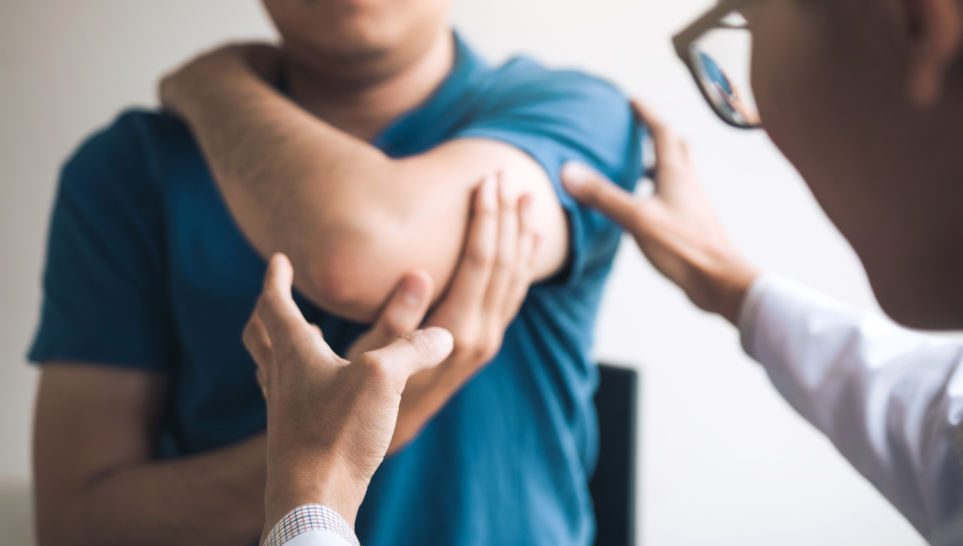
Shoulder injury treatments depend on your exact condition. For example, adhesive capsulitis requires different treatments than a torn rotator cuff. Common shoulder injury treatment methods include the following:
- Rest and ice: With minor injuries, you may recover by avoiding shoulder injury-related activities, resting, and icing regularly. If this modest approach doesn’t work, your doctor may recommend one of the following.
- Physical therapy: Physical therapy can re-strengthen your injured muscles and help you improve your range of motion. You may need to attend regular appointments for weeks or months with at-home exercises for proper recovery.
- Steroid injections: Steroid injections can relieve shoulder inflammation, offering nearly immediate, but often temporary, pain relief. Steroid injections can help you feel better, though they cannot cure a tear.
- Pain medications: Your doctor may prescribe a nonsteroidal anti-inflammatory drug or pain medication to help you manage the discomfort.
- Surgery: If the above methods do not alleviate your symptoms, your doctor may recommend a more aggressive approach, like surgery. Doctors typically only recommend surgery for more severe tears that won’t heal on their own.
What Should You Do If You Have a Rotator Cuff Vaccine Injury?
Only 3 to 56% of torn rotator cuff vaccine victims experience a full recovery. If you notice symptoms, you should adhere to the following steps to protect your health and financial best interests:
- Seek medical attention for your injury immediately.
- Follow all doctor-recommended treatments, therapies, and medications.
- Keep records of your medical bills and history relating to the accident.
- Contact an attorney to begin building your case.
- Report the SIRVA injury to VICP with your attorney’s help.
- Seek compensation for your losses.
Adhering to your doctor’s recommendations is critical to achieving a full recovery and maximum compensation for your damages. Make sure to adhere to all necessary treatments.
How To Avoid a Shoulder Injury Related to Vaccines
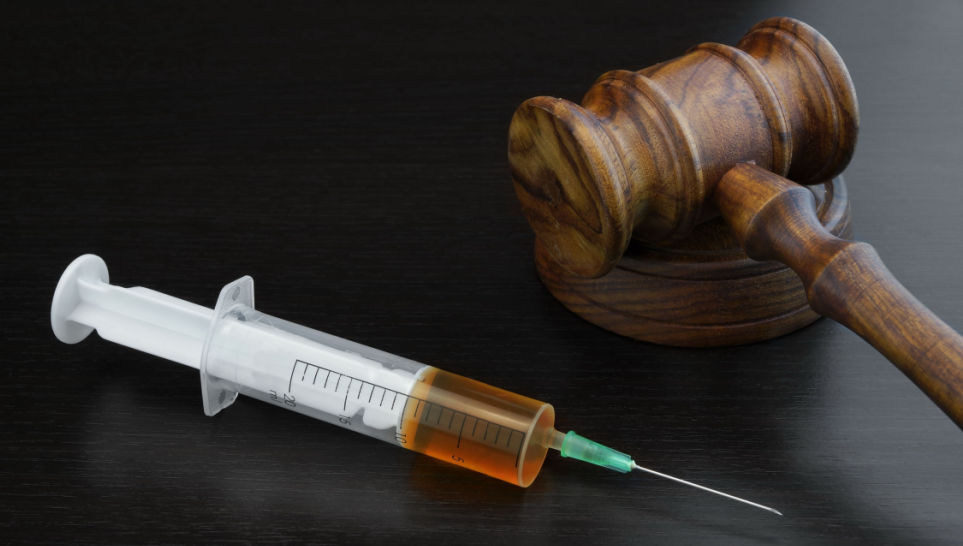
Avoiding shoulder injuries related to vaccines typically falls into the hands of the injection administrator. As the patient, you cannot control how the injection will affect your shoulder. The best things you can do to reduce your risks of injury during your vaccine include the following:
- Select a trusted and experienced organization for your vaccine
- Speak up if you notice needle placement high above the muscle in the shoulder joint
- Review this administration guide to understand what to expect
- Relax your arm as the administrator injects the vaccine
- Watch out for adhesive capsulitis or other symptoms following the appointment
Can You File a Vaccine Injury Lawsuit for Shoulder Injuries?
The National Vaccine Injury Compensation Program covers shoulder injuries related to vaccines, meaning you may receive compensation from this government funding pool. You may also file a lawsuit against the liable organization.
The right option for your needs depends on many factors. For example, if the National Vaccine Injury Compensation Program does not cover the vaccine that caused your injury, you may need to file a lawsuit instead.
How Much Compensation Can You Receive?
The National Vaccine Injury Compensation Program has paid billions in total to vaccine injury victims. The amount you can receive depends on the circumstances of your injury and your damages. In general, you can seek compensation for the following losses:
- Medical expenses: Medical expense compensation can cover all past, present, and future costs associated with your injury, including long-term physical therapy treatments, prescriptions, procedures, exams, and more.
- Lost wages: If you lose wages due to an inability to work from your injury, you may seek compensation to cover the damages. Victims that lost their ability to complete various household services, like childcare, may also seek compensation to cover replacements.
- Pain and suffering: Seeking compensation for pain and suffering is challenging since nearly all shoulder injury victims endure some level of pain. An experienced attorney can help with your claim. Anyone suffering traumatic adhesive capsulitis symptoms or long-term pain complications may have better chances of seeking this compensation.
How Sadaka Law Can Help Your Rotator Cuff Injury Case
If you suffered a rotator cuff injury from faulty vaccine administration, you might be eligible to seek compensation for your losses. At Sadaka Law, we understand that money cannot undo your suffering, but it can help you receive the treatments you need to recover. Contact us at Sadaka Law today for a free consultation with our team so we can discuss your vaccine injury case.
